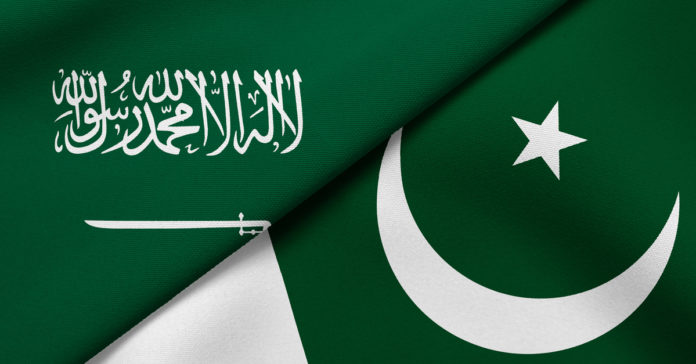Pakistan has received $3billion from Saudi Arabia as part of an economic package to bolster foreign exchange reserves and augment the economic ties between Islamabad and Riyadh, according to a senior government official.
Shaukat Tarin, the finance adviser to Pakistan’s Prime Minister Imran Khan, said in a tweet: “Good news, $3 billion Saudi deposit received by the SBP (State Bank of Pakistan). I want to thank His Excellency Crown Prince Mohammad Bin Salman and Kingdom of Saudi Arabia for the kind gesture.”
Later the Cabinet of Pakistan approved the deal between the SBP and Saudi Fund for Development (SFD). According to the agreement, Pakistan has to pay back the amount in one year with an interest rate of four per cent.
The agreement was signed a month after Prime Minister Imran Khan visited Saudi Arabia and held talks with Crown Prince Mohammad Bin Salman. After the meeting, the Saudis agreed to assist Pakistan with $4.2 billion.
Out of the total amount, $1.2 billion was meant to finance refined petroleum products during the year and the rest was to be deposited in the Central Bank of Pakistan.
The assistance from the Saudis is expected to reduce pressure on Pakistan’s currency. According to a Pakistani newspaper, The Express Tribune: “The Pakistani rupee hit an all-time low of $176.77 against the greenback in the interbank market on Friday. Prior to the receipt of the kingdom deposits, Pakistan’s foreign exchange reserves stood at $16.01 billion in the week that ended on November 26, according to the central bank’s latest weekly update made on Thursday.”
Fahad Rauf, head of research at Ismail Iqbal Securities, told the Tribune: “The Saudi lending should help the rupee to stabilise at around $175 against the dollar next week. With the receipt of the Saudi deposits, theoretically speaking, Pakistan’s foreign exchange reserves have increased to over $19 billion.”
Subscribe to our newsletter and stay updated on the latest news and updates from around the Muslim world!
Saudi assistance provides short-term relief to Pakistan in maintaining its foreign reserve position. However, the trade deficits in the current account remain due to the heavy dependence on imports, especially energy products and machinery.
This short-term financing won’t adjust the deficit long term so further external financing will be required, as well as increasing remittances and exports. The IMF is also expected to release $1 billion as part of its $6 billion loan programme.
The country posted the highest ever monthly trade deficit of $5.1 billion in November. Exports rose 34 per cent year-on-year to $2.9 billion, while imports soared 95 per cent year-on-year to $8 billion. The trade gap jumped 117 per cent to 20.8 billion in five months of this fiscal year with exports reaching $12.4 billion and imports 33.1 billion, respectively.






















